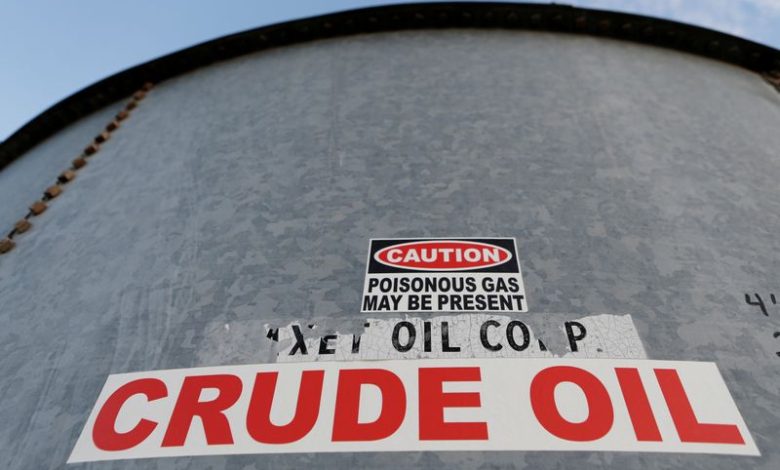
Russian Oil’s Achilles’ Heel: Insurance Issues
By Jonathan Saul, Nidhi Verma, Yuka Obayashi, and Carolyn Cohn
LONDON/NEW DELHI/TOKYO – Russia has managed to mitigate some of the effects of sanctions on its oil trade, but the insurance sector poses a significant challenge unless Moscow and its clients can find alternatives to replace Western underwriters.
Industry insiders report that insurers from Europe and the United States, who hold a dominant position in the international marine market, are reducing coverage for Russian oil tankers. This strategic move is aimed at avoiding violations of sanctions implemented following Russia’s invasion of Ukraine. Even non-Russian vessels are now at risk of losing coverage from Western insurers if they carry Russian crude.
The actions of Western insurers could hinder Russia’s recent success in redirecting crude supplies from Europe and the United States to Asia, potentially escalating the decline of its European market and impacting global energy markets significantly, given that Russia is the world’s second-largest crude exporter.
This pullback in insurance coverage is likely to escalate during June and July, as policies that were initially withdrawn in anticipation of stricter European Union sanctions fully expire, according to unnamed shipping and industry sources.
Maria Bertzeletou, an analyst at Signal Maritime Services, stated, "There is ongoing pressure for international marine insurers to avoid covering shipping companies globally for transporting Russian oil." She added that a "turmoil or a short-term hiatus on marine insurance cannot be ruled out."
Commercially, ships are required to possess protection and indemnity (P&I) insurance, which addresses third-party liability claims, including those related to environmental damage and injuries. Separate hull and machinery policies are also necessary to cover vessels against physical harm.
While insurance companies in nations that still purchase Russian oil might step in, their capacity to manage substantial policy risks through their own reinsurance arrangements is likely to be affected. The global reinsurance market is predominantly controlled by U.S. and European firms, who must now adhere to a comprehensive array of sanctions that target Russian shipping and banking interests.
Mike Salthouse, the head of claims at North, an influential member of an association that provides P&I insurance for around 90% of ocean-going ships, remarked, "Identifying a reinsured claim that would not in some way be affected by those sanctions is going to be challenging."
Without reinsurance, an insurer providing coverage for an oil tanker would probably require a government guarantee to manage potential liabilities that could involve billions of dollars. Salthouse noted that Russian insurers might be capable of writing third-party liability and reinsurance programs, potentially backed by a sovereign fund from China, Russia, or a combination of both.
Currently, buyers in India and China are taking in Russian crude that has been refused by Western nations, and this oil is available at lower prices due to the sanctions, according to industry reports. The International Energy Agency indicated that Russian oil exports returned to their pre-invasion average in April.
In light of the withdrawal of Western insurers, Russia is reportedly seeking coverage from domestic companies, including its fourth-largest provider, Ingosstrakh. However, there is no confirmation on whether the Russian government or any sovereign state has provided financial guarantees to privately-owned Ingosstrakh.
India, a long-standing ally of Russia, has notably increased its import of Russian crude, climbing to a 10% share from none since the start of the year. A senior Indian official mentioned that insurance would not hinder future purchases, stating that Ingosstrakh would cover any maritime hazards.
In addition, China, the world’s largest oil importer, is also significantly ramping up Russian oil purchases at discounted rates. However, sources indicate that Chinese insurers willing to replace Western firms would probably need a sovereign backing to take on these increased risks.
Historical precedents exist for governments intervening to guarantee maritime risks associated with transporting sanctioned commodities. For instance, Japan utilized a sovereign liability guarantee in 2012 to facilitate Iranian oil imports after Western insurers withdrew cover due to sanctions.
Current sanctions imposed from the U.S., EU, and UK have prohibited Russian-owned or flagged vessels from accessing ports, engaging in new trading contracts, or securing new insurance cover. Although there is no outright ban on insuring foreign-owned ships transporting Russian oil, such measures are being considered as part of a new EU sanctions package that may include an embargo on Russian oil imports.
In the meantime, the insurance industry is preemptively implementing self-sanctioning measures in anticipation of further restrictions, leading to the withdrawal of numerous services in Russia’s maritime sector. This includes the cessation of ship certifications by prominent foreign providers—essential for port access and securing insurance—as well as shipping firms exiting the market and engine manufacturers halting equipment training.
Ross Denton, an international trade expert at a major law firm, commented, “Private businesses are going harder and higher than governments ever would, as they fear the response from activist investors and shareholders.”
 GOOGL
GOOGL  META
META 


